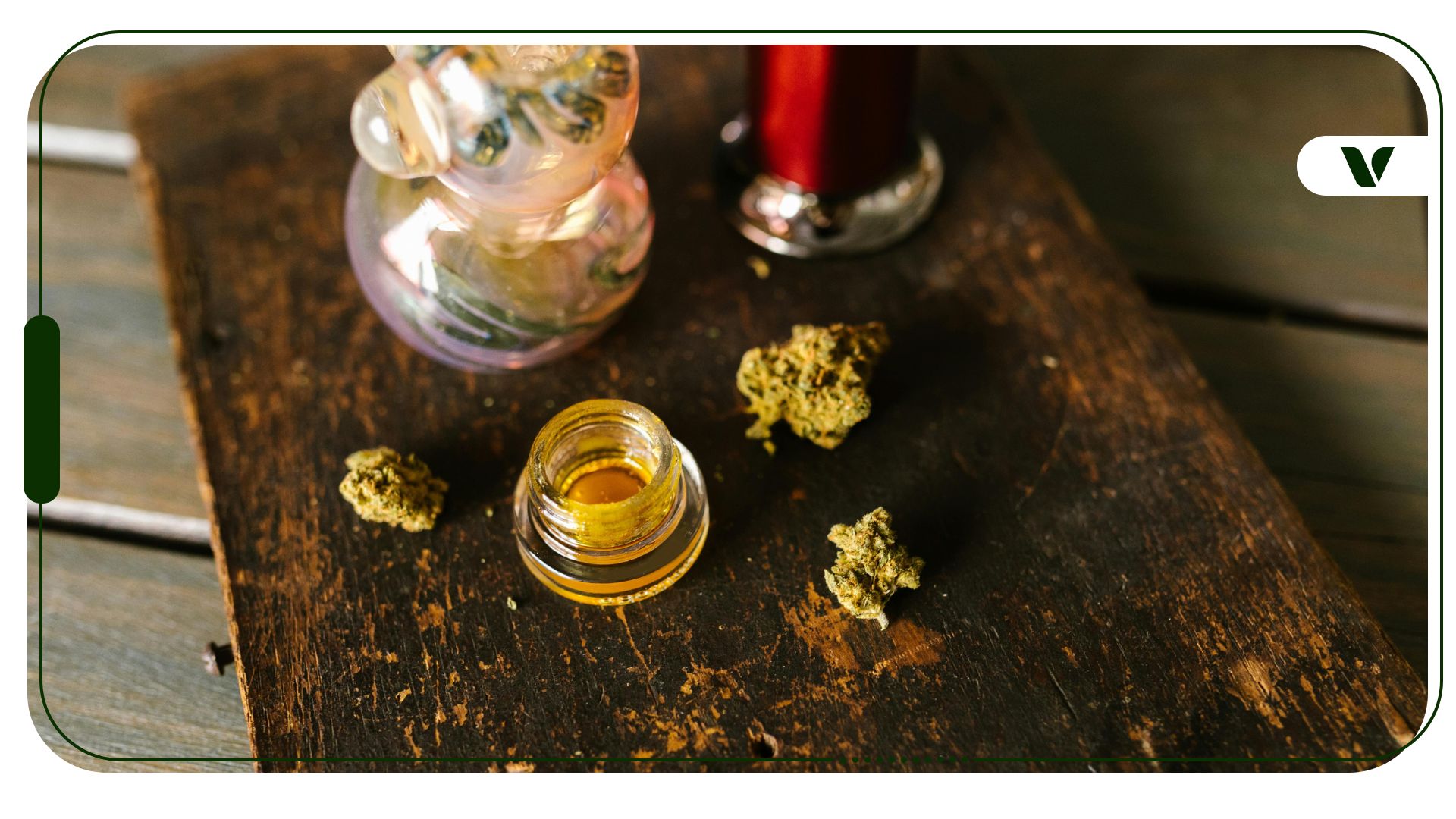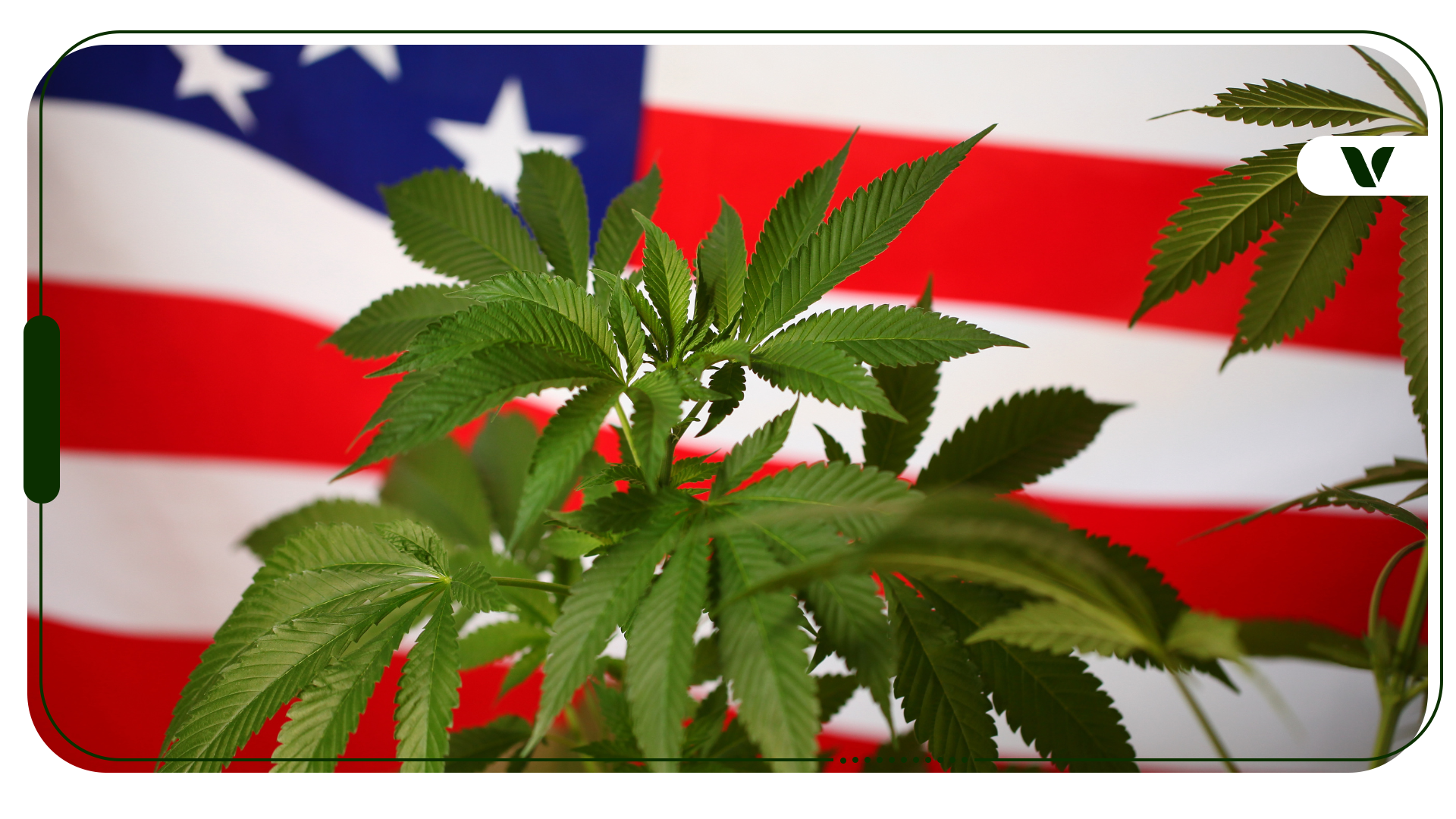It’s undeniable that today’s cannabis isn’t the same as it was mere decades ago. While flower had an average tetrahydrocannabinol (THC) content of 4% in the 1990s, it’s not uncommon to now find cannabis strains with 25% THC or more. These strains are considered to be “high-THC.”
High-THC cannabis is a hot topic that has become more controversial in recent years. While these strains have the potential to offer better relief to medical patients, emerging research has revealed serious risks associated with consuming such potent products. Here’s the scoop on high-THC cannabis.
How THC Levels Are Measured
The most common way of measuring THC percentages is through a process known as high-performance liquid chromatography, or HPLC. This process uses a liquid solvent to chemically separate various compounds from the cannabis plant, which can be measured by lab techs to provide a nearly 99% accurate cannabinoid content rating. When you purchase cannabis flower from a dispensary, the label should provide the cannabinoid content of the product.
Note that THC levels are supposed to be checked independently by a third party lab. Recently, however, certain unscrupulous practices like “lab shopping” have emerged to drive artificially inflated THC percentages. While not every cannabis business does this, it’s a cautionary note about why consumers should also interpret high-THC percentages with a grain of salt.
THC Levels of Cannabis Flower
High-THC cannabis typically refers to cannabis flower with a high THC content, but it’s important to note that cannabis concentrates (think vaping and dabbing) and edibles are also very potent products that should be consumed carefully. Concentrates can have THC levels of anywhere from 50-80% and sometimes even higher, and edibles usually provide 10–50 milligrams of THC per serving.
Risks and Side Effects of High-THC Cannabis
Consuming high-THC cannabis comes with risks. The more THC you consume in one sitting, the more likely you will experience some adverse side effects, such as dry mouth, increased appetite, fatigue, nausea, anxiety, and paranoia.
Additionally, research into high-THC cannabis products has revealed more specific concerns. A 2022 systematic review of 20 observational human studies concluded that high-potency cannabis is associated with an increased risk of psychosis and cannabis use disorder (CUD).
Highly potent cannabis is also linked to cases of cannabis hyperemesis syndrome, or “scromiting,” in young consumers. A 2020 study also found that consuming a high amount of THC can potentially lead to increased anxiety.
For these reasons, some healthcare professionals discourage consumers—especially beginner cannabis users—from purchasing high-THC cannabis.
Recent Developments in the Debate on High THC
Concern about the potential risks of THC have more recently sparked full-fledged campaigns on the topic. In December 2024, the Colorado School of Public Health partnered with Initium Health to launch a campaign called “The Tea on THC.”
The campaign largely focuses on teens, young adults, and parents, warning them of dangers associated with high THC. Those spearheading the campaign include former Denver Broncos wide receiver Brandon Lloyd and Laura Stack, a mother to a teenager who died from suicide after being diagnosed with THC abuse.
CBS News explains, “Laura Stack and her family have taken their grief and used it to educate others, regularly speaking to schools about the dangers of high-concentration THC. And fighting for the legislation that led to the launch of “The Tea on THC” education campaign.”
While serious and tragic, evidence shows THC abuse happens easier in the setting of severe depression and suicidal ideation. Often misinterpreted as the cause rather than a symptom, as it is here; high THC abuse is a sign of struggling to cope. At the time, Johnny was entering high school and likely had difficulty adjusting and opening up about his personal struggles.
If you or a loved one are struggling with dependence or suicidal ideation, please reach out for help right away.
Why You Should Get Your Medical Marijuana Card
Veriheal has satisfied millions of patients nationwide by giving them access to these benefits
- Larger purchase limits
- Peace of mind
- Enhanced legal protection
- Access to higher potency strains
- Save up to 25% on cannabis purchases
- Skip the line at the dispensary
The Addictions, Drug and Alcohol Institute at the University of Washington also recently reported on the risks of high THC products. They delve into findings that reveal “increasing illnesses, ER visits, and deaths related to use of high-THC products like extracts for vaping, dabbing, etc., which many people don’t realize have little resemblance to the actual cannabis plant.”
Dr. Carlini argues that many high-THC products are so hyper processed and divorced from the original cannabis plant that they may be compared to a strawberry Pop-Tart from a strawberry.
This research illustrates the importance of caution and care when choosing and using THC products, especially in terms of knowing what exactly is in the products that you purchase and how much THC is in them.
Benefits of High-THC Cannabis
That being said, there are also some benefits associated with high-THC products, specifically in medical contexts.
A highly concentrated product may be able to deliver similar benefits at lower doses than less concentrated products. It may also mean less frequent dosing, and less airway effects because of the smaller dose. However, high THC carries increased risk for THC-related side effects, potential dependence, and tolerance.
Cannabis products containing THC are prescribed and used to provide relief for a variety of medical conditions and symptoms, including chronic pain, nausea from chemotherapy, PTSD, IBS, Parkinson’s, and more. Some medical marijuana contains higher concentrations of THC in order to provide adequate relief for patients.
Final Takeaways
The conversation surrounding high-THC products continues to develop as new research emerges. Much of the recent research on these products does illuminate some serious potential risks to consider. At the same time, some high-THC products may prove beneficial for certain individuals within a medical context, involving controlled dosing to minimize odds of side effects.
As with any THC product, use caution, and start with lower potencies as you learn your limits.
Frequently Asked Questions
What strain has the highest THC level?
With a quick web search, you will find that there is some debate surrounding this question as well. These are some of the top contenders: Little Devil, Jack’s Girl, Quattro Kush, Godfather OG, and Banana typically all contain over 25% THC.
How long can THC keep its potency?
Cannabis products can retain their THC potency for a long period of time when stored properly. In general, cannabis flower can retain its full THC potency for an average of six months to a year. According to research, cannabis THC content degrades by 16% on average after one year. Cannabis edibles will act similarly, although some may go bad before they lose potency due to the other ingredients they contain.
Can you make a strain more potent?
The only way to truly make a strain more potent is to breed a stronger genetic lineage with that strain during its cultivation. If you want to quickly spice up your joint or bowl, however, you can add cannabis concentrates like kief and wax to the ground flower.
How can I test THC potency at home?
Unfortunately, while there are many available methods for testing THC potency at home, none of them have been proven to offer consistent accuracy.
Some devices may be able to give you a general idea of the THC content of your product, but the only way to know for sure is to have a sample of it sent off and tested by a licensed laboratory.
Are there other qualities to look for in a strain besides THC content?
THC has long been the most sought-after compound in cannabis due to its ability to induce a high, but many cannabis connoisseurs are now seeking cannabis that offers a balanced blend of cannabinoids (e.g., THC, CBD) and terpenes (e.g., myrcene, limonene). This is because consuming multiple kinds of compounds is thought to create amplified effects, a theory known as the entourage effect.
Author, Share & Comments








